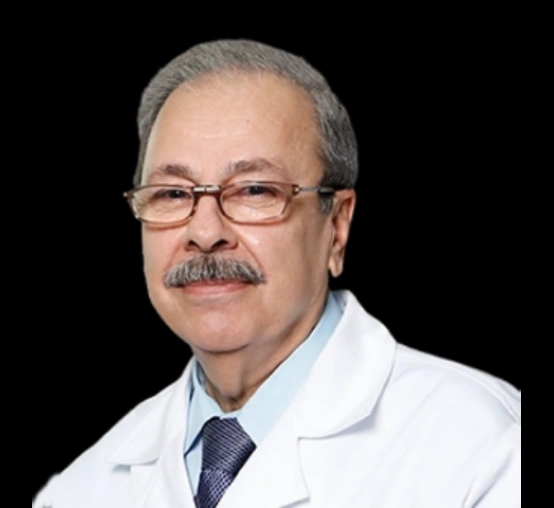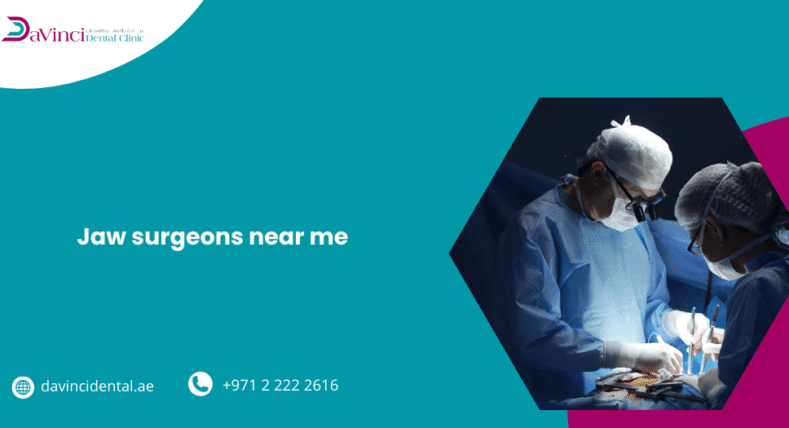You likely have an issue affecting your jaw, teeth, or face structure if you’ve been looking for a private maxillofacial near me.
A maxillofacial surgeon is the expert you need for any significant oral health concerns, including impacted wisdom teeth, corrective jaw surgery, and more.
These professionals are highly qualified to do surgical treatments involving the mouth, jaw, and face, unlike regular dentists.
In this article, we’ll describe what a maxillofacial surgeon does, how to choose the correct oral surgeon, the reasons for jaw surgery, and the most common conditions that require treatment.
Table of Contents
What Is a Maxillofacial Surgeon?
An oral surgeon is a specialist who treats and diagnoses diseases of the gums, tongue, teeth, and mouth. This might involve procedures like getting dental implants or removing your wisdom teeth.
General oral health care is often provided by dentists, but for more complex procedures that call for surgery, they could recommend that you see an oral or maxillofacial surgeon.
How to Choose a Maxillofacial Surgeon
Procedures performed by maxillofacial surgeons are more complex than those performed in a typical dentist’s clinic. These include extractions of your wisdom teeth, dental implants, and bone or gum grafts to correct receding gums or strengthen the jawbone.
Make sure the oral surgeon you choose has the required education, experience, and certification.
A qualified oral surgeon will address all of your inquiries and provide a thorough explanation of the procedure. Gaining that confidence will need a one-on-one conversation, whether it’s for a little procedure or something much more significant.
Why Have Jaw Surgery?
One aspect that may affect a person’s facial look is jaw disproportion or misalignment, which can also significantly impact breathing, speaking, chewing, and dental appearance.
In specific circumstances, jaw surgery enhances the look of the face by restoring facial equilibrium. Additionally, this can significantly enhance chewing and jaw function, as well as improve speech, dental appearance, and in certain situations, breathing.
At Davinci Dental Clinic, our experienced maxillofacial surgeons carefully assess each patient’s needs and provide customized treatment plans using the latest techniques.
Common Conditions For Jaw Surgery
Small lower jaw
Having a small lower jaw may make it difficult or impossible for your front teeth to align properly. This may result in issues while eating particular foods.
Big lower jaw
Because the lower front teeth sit ahead of the higher teeth, eating may become difficult if the lower jaw protrudes more than the upper jaw.
Asymmetry in the face
Patients may see an asymmetrical appearance of their upper and/or lower jaws. This imbalance might have happened for several reasons. Accurately identifying the problem’s origin is essential since failing to do so may result in poor treatment outcomes. Facial asymmetry causes jaw discomfort and problems with eating.
Small upper jaw
When they first arrive, several patients frequently feel that their lower jaw is excessively large. However, the upper jaw is the cause of the issue in lots of these situations. This requires the right procedure to provide a stable and visually pleasing profile after treatment.
Large upper jaw
Sometimes the upper jaw may extend more than is ideal. This frequently shows up as a “gummy smile” and can lead to gum disease and patient confidence issues.
In order to provide a patient with a confident and well-balanced amount of tooth show in their smile, jaw surgery may be an alternative for correcting this kind of issue.
Open bite
An open bite occurs when the jaws develop in a way that prevents the teeth from meeting at the front. The front teeth may be able to come together with jaw surgery.
Bite issues after a trauma
Your bite and profile may have altered if you have had a facial fracture affecting either the upper or lower jaw. In some situations, jaw surgery can be a possibility to fix the issue. This kind of surgery is typically more complicated and calls for the expertise of a qualified surgeon and orthodontist.
What To Do Before Choosing a Private Maxillofacial Near Me
Researching and selecting a reputable clinic, like Davinci Dental clinic, is essential before selecting a private maxillofacial near me.
Davinci, known for its highly experienced oral and maxillofacial surgeons, provides innovative technology, modern treatment procedures, and tailored care plans to assure the best possible outcomes.
Check the clinic’s qualifications and patient reviews, and set up a consultation to talk about your concerns before scheduling your treatment. This way, you’ll get peace of mind knowing that you are in capable hands and getting outstanding treatment that is catered to your requirements.
Read More: Maxillofacial Doctor Near Me.
Conclusion
If you’ve been searching for a private maxillofacial near me, it’s important to choose a clinic that combines expertise, advanced technology, and compassionate care.
From extractions of wisdom teeth to complicated jaw operations, maxillofacial treatments need the expertise of highly skilled professionals who can guarantee both practical and visually appealing results.
Patients at Davinci Dental Clinic enjoy personalized treatment programs, innovative techniques, and the comfort of dealing with skilled oral and maxillofacial specialists.
You can feel secure knowing that your dental health and facial balance are in capable hands if you take the time to investigate and choose the best clinic.
Read More: Maxillofacial Clinic Near Me.
Frequently Asked Questions
Which condition is most likely treated by an oral and maxillofacial surgeon?
Cancers, cleft lip and palate, facial injuries, diseases of the jaw, and dental problems are just a few of the many conditions that oral and maxillofacial surgeons treat that impact the face, head, and neck.
What does a maxillofacial deal with?
The medical specialty that deals with the diagnosis and treatment of conditions affecting the face, neck, mouth, and jaws is oral and maxillofacial surgery. This specialty is unique as it necessitates combined training in dentistry and medicine.
What drugs are used in oral and maxillofacial surgery?
Adult patients undergoing oral surgery are prescribed antibiotics, antiseptics, sedative hypnotics, and anti-inflammatory medications. These medications may be given before, during, or after surgery. Sedative hypnotics can be administered before or during surgery to help patients feel less anxious.





